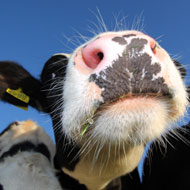
Dairy farmers may be unsure of best practice when it comes to antibiotics, a new survey suggests.
More than 200 farmers took part in a study by Farmers Weekly and animal health company Zoetis. Of these, only 68 per cent had heard of selective dry cow therapy.
From 1 October, all of Arla's producers will be required to use selective dry cow therapy, having discussed and agreed on the use of antibiotics with their vet. This is part of Arla's quality-assurance programme.
Traditionally, drying-off practices among many dairy farmers have involved the blanket use of antibiotics across all cows, to prevent and treat any new infections that develop during the dry period.
Now, amid concerns over antibiotic resistance, farmers are being urged to target their use of antibiotics.
Research also shows the use of narrow-spectrum antibiotics in low cell count cows could increase the risk of mastitis in the following lactation.
Of those farmers who had heard of selective dry cow therapy, 30 per cent were positive about it, saying they were practising it, thought it was progressive, or would make things better and cheaper.
Meanwhile, 32 per cent had concerns it would take more time, was risky, or could lead to an increase in cell counts.
Other key findings
- 78 per cent are using an internal teal sealant.
- 33 per cent said maintaining cleanliness at drying off is the biggest challenge.
- 39 per cent said they choose different antibiotics for different cases in consultation with their vets.
- 82 per cent said they are trying to adopt better hygiene to reduce antibiotics usage.
Mastitis expert Andrew Bradley, however, said he believes there may be some confusion over mastitis testing. Nearly a quarter (73 per cent) of farmers said they identify mastitis bacteria causing infection.
“I suspect that of the 73 per cent who claim to be testing for mastitis bacteria, many will be basing their results on bulk tank culture, which is not identifying mastitis bacteria," said Mr Bradley, who is director of Quality Milk Management Services.
“There is a huge misconception that if you do a bulk milk tank PCR it can tell you what mastitis-causing bacteria are present – this is complete nonsense. The vast amount of bacteria in a bulk tank is from the environment."
For the full results, visit: http://www.fwi.co.uk/livestock/exclusive-survey-results-use-of-antibiotics-on-UK-dairy-farms.htm



 The latest
The latest